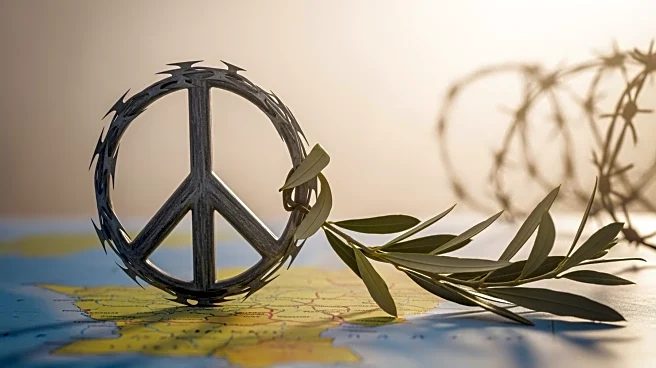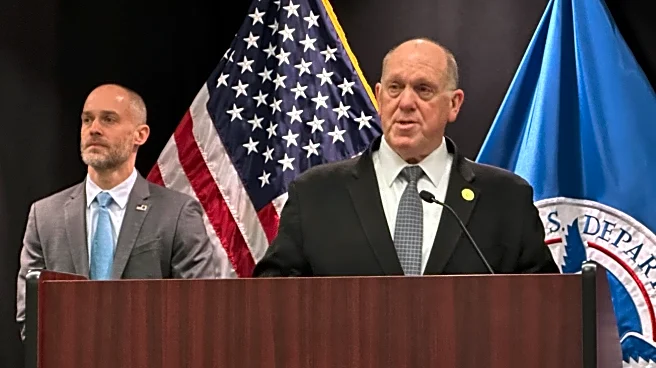What's Happening?
Pakistan and Afghanistan have agreed to a 48-hour ceasefire following deadly border clashes that resulted in dozens of casualties. The ceasefire took effect at 6 pm Pakistan time, with Pakistan claiming that Afghanistan requested the temporary halt to fighting.
Prior to the ceasefire, Pakistan reported killing dozens of Afghan forces in military operations, while Afghanistan accused Pakistan of targeting civilians. The clashes are the deadliest in recent years, raising concerns about a wider conflict in the region.
Why It's Important?
The ceasefire is a critical step towards de-escalating tensions between Pakistan and Afghanistan, potentially preventing further violence and loss of life. The agreement may open avenues for dialogue and diplomatic efforts to address the underlying issues causing the conflict. The situation highlights the fragile security environment in the region, with implications for regional stability and international relations. The involvement of terrorist groups adds complexity to the conflict, necessitating coordinated efforts to address security threats.
What's Next?
Both countries are expected to engage in dialogue to find a resolution to the border conflict. International stakeholders may play a role in facilitating discussions and ensuring compliance with the ceasefire. The situation remains volatile, and any breach of the ceasefire could lead to renewed hostilities. Monitoring and verification mechanisms may be established to ensure adherence to the agreement.
Beyond the Headlines
The ceasefire agreement underscores the importance of diplomatic engagement in resolving conflicts. The situation highlights the challenges faced by countries in managing border disputes and the role of international actors in promoting peace. The conflict may influence regional alliances and impact geopolitical dynamics, with countries reassessing their positions and strategies.

















